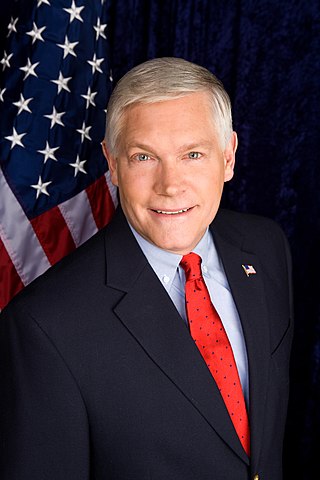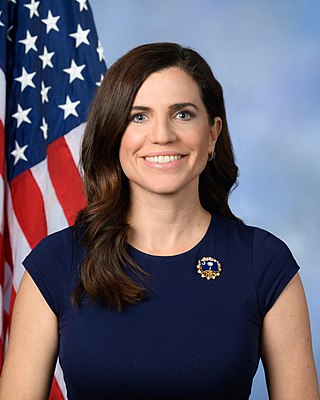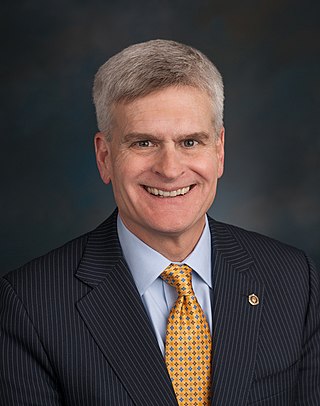
Lincoln Rafael Díaz-Balart is a Cuban-American attorney and politician. He was the U.S. representative for Florida's 21st congressional district from 1993 to 2011. He is a member of the Republican Party. He previously served in the Florida House of Representatives and the Florida Senate. He retired from Congress in 2011 and his younger brother, Mario Díaz-Balart, who had previously represented Florida's 25th congressional district, succeeded him. He is currently chairman of the Congressional Hispanic Leadership Institute. After leaving Congress, he started a law practice and a consulting firm, both based in Miami, Florida.

Ileana Ros-Lehtinen is a politician and lobbyist from Miami, Florida, who represented Florida's 27th congressional district from 1989 to 2019. By the end of her tenure, she was the most senior U.S. Representative from Florida. She was Chairwoman of the House Foreign Affairs Committee from 2011–2013. In 1989, Ros-Lehtinen won a special election and became the first Cuban American elected to Congress. She was also the first Republican woman elected to the House from Florida. Ros-Lehtinen gave the first Republican response to the State of the Union address in Spanish in 2011, and gave the third in 2014.

Mario Rafael Díaz-Balart Caballero is an American politician serving as the U.S. representative for Florida's 26th congressional district. A Republican, he was elected in 2002, and his district includes much of southwestern Miami-Dade County, including Hialeah, and much of the northern portion of the Everglades.

Peter Anderson Sessions is an American politician from Texas who is the U.S. representative for Texas's 17th congressional district. A member of the Republican Party, he has served in the U.S. House of Representatives for 11 terms. He chaired the House Rules Committee from 2013 to 2019 and is a former chair of the National Republican Congressional Committee. He was defeated for reelection by Democrat Colin Allred in 2018. On October 3, 2019, Sessions announced that he was running for Congress again in 2020. He was elected to the 17th district congressional seat on November 3, 2020.

Nancy Ruth Mace is an American politician serving as the U.S. representative for South Carolina's 1st congressional district since 2021. Her district includes much of the state's share of the East Coast, from Charleston to Hilton Head Island.

Charles Wieder Dent is an American politician who served as a Republican member of the United States House of Representatives for Pennsylvania's 15th congressional district from 2005 to 2018.

The Development, Relief, and Education for Alien Minors Act, known as the DREAM Act, is a United States legislative proposal to grant temporary conditional residency, with the right to work, to illegal immigrants who entered the United States as minors—and, if they later satisfy further qualifications, they would attain permanent residency.

William Morgan Cassidy is an American physician and politician serving as the senior United States senator from Louisiana, a seat he has held since 2015. A member of the Republican Party, he served in the Louisiana State Senate from 2006 to 2009 and in the U.S. House of Representatives from 2009 to 2015.

Darren Michael Soto is an American attorney and Democratic politician from Kissimmee, Florida, who is the U.S. representative for Florida's 9th district.

The Respect for Marriage Act is a landmark United States federal law passed by the 117th United States Congress and signed into law by President Joe Biden. It repeals the Defense of Marriage Act (DOMA), requires the U.S. federal government and all U.S. states and territories to recognize the validity of same-sex and interracial civil marriages in the United States, and protects religious liberty. Its first version in 2009 was supported by former Republican U.S. Representative Bob Barr, the original sponsor of DOMA, and former President Bill Clinton, who signed DOMA in 1996. Iterations of the proposal were put forth in the 111th, 112th, 113th, 114th, and 117th Congresses.

Carlos Luis Curbelo is an American politician who served as the U.S. representative for Florida's 26th congressional district from 2015 to 2019. In 2018, he was narrowly defeated for re-election by Democrat Debbie Mucarsel-Powell. He is a member of the Republican Party. Prior to his election to the U.S. House, he served on the Dade County School Board.

The Equality Act is a bill in the United States Congress, that, if passed, would amend the Civil Rights Act of 1964 to prohibit discrimination on the basis of sex, sexual orientation and gender identity in employment, housing, public accommodations, education, federally funded programs, credit, and jury service. The Supreme Court's June 2020 ruling in Bostock v. Clayton County protects gay and transgender people in matters of employment, but not in other respects. The Bostock ruling also covered the Altitude Express and Harris Funeral Homes cases.

Brian Kevin Fitzpatrick is an American politician, attorney, and former FBI agent who has served as a U.S. Representative from Pennsylvania since 2017. His district, which was numbered the 8th district during his first term and the 1st district since 2019, includes all of Bucks County, a mostly suburban county north of Philadelphia, as well as a sliver of Montgomery County.
The following is a list of efforts to repeal the Affordable Care Act, which had been enacted by the 111th United States Congress on March 23, 2010.

The Pain-Capable Unborn Child Protection Act is a congressional bill that would, in most cases, make it unlawful to perform an abortion if the estimated post-fertilization age of a fetus is 20 weeks or more. The bill is based upon the assertion that a fetus is capable of feeling pain during an abortion at and after that point in a pregnancy.
The Strengthening the Tenth Amendment Through Entrusting States (STATES) Act was a bill proposed in the 115th United States Congress that would recognize legalization of cannabis and the U.S. state laws that have legalized it through their legislatures or citizen initiative. It was introduced on June 7, 2018 by Senators Cory Gardner and Elizabeth Warren. A companion bill was introduced the same day in the House of Representatives, sponsored by Earl Blumenauer and David Joyce. The act would amend the Controlled Substances Act of 1970 to exempt from federal enforcement individuals or corporations in states who are in compliance with U.S. state, U.S. territory and the District of Columbia, or tribal law on cannabis, with certain additional provisions such as minimum ages. The banking provisions of the STATES Act have been reintroduced as the Secure and Fair Enforcement (SAFE) Banking Act of 2019 in the 116th U.S. Congress by Ed Perlmutter in the House, and by Jeff Merkley in the Senate. As of September 18, 2019, the House bill had 206 cosponsors, and the Senate bill had 33 cosponsors.

The For the People Act, introduced as H.R. 1, is a bill in the United States Congress intended to expand voting rights, change campaign finance laws to reduce the influence of money in politics, ban partisan gerrymandering, and create new ethics rules for federal officeholders.

The Russian–Venezuelan Threat Mitigation Act is a bill in the 116th United States Congress sponsored by Rep. Debbie Wasserman Schultz (D-FL) and co-sponsored by Mario Díaz-Balart (R-FL), Donna Shalala (D-FL), and Debbie Mucarsel-Powell (D-FL). It aims to monitor and investigate Russia's increasing involvement in the 2019 Venezuelan presidential crisis and the crisis in Venezuela in general.

The U.S. Citizenship Act of 2021 was a legislative bill that was proposed by President Joe Biden on his first day in office. It was formally introduced in the House by Representative Linda Sánchez. It died with the ending of the 117th Congress.

The Banning Operations and Leases with the Illegitimate Venezuelan Authoritarian Regime Act, known as the BOLIVAR Act for short, is a bill introduced by Congressman Michael Waltz and approved in the United States House of Representatives, and referred to the United States Senate. The proposal is aimed at ending government contracts with businesses working with the Nicolás Maduro administration in Venezuela. The acronym of the act is named after the Venezuelan independence leader Simón Bolívar.












